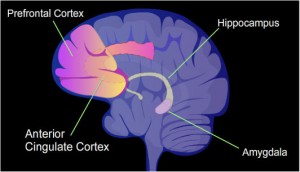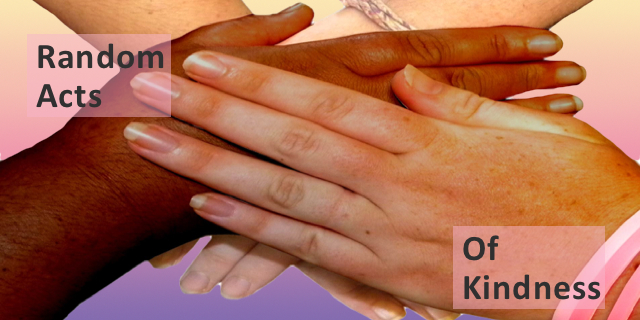“No act of kindness, no matter how small, is ever wasted.”~Aesop
Research on Giving
People who donate a kidney to complete strangers are called extraordinary altruists. They’ve been the subject of recent research by Abigail Marsh of Georgetown University.
 Her research looked at extraordinary altruists’ brains, specifically the amygdala. The amygdala is a section involved in emotions like fear. But it has also been found to be involved in emotions like loving and caring. She has found that extraordinary altruists have amygdalae that are 8% larger than normal. Perhaps they had larger amygdalae from birth or maybe kindness changes the structure of the brain.
Her research looked at extraordinary altruists’ brains, specifically the amygdala. The amygdala is a section involved in emotions like fear. But it has also been found to be involved in emotions like loving and caring. She has found that extraordinary altruists have amygdalae that are 8% larger than normal. Perhaps they had larger amygdalae from birth or maybe kindness changes the structure of the brain.
Other research supports the benefits of kindness. Elizabeth Dunn at the University of British Columbia conducted research on toddlers. In the study, toddlers were given treats for themselves. A few minutes later the researcher asked them to give one of their own treats to a puppet. Later the experimenter gave the toddler extra treats that were specifically for the puppet. Their reactions were videotaped. The study found that when the toddlers gave their own treats away, they displayed greater happiness than when they gave a treat that the researcher provided for the puppet.
Other research with adults involved spending money on themselves versus spending money on others. People were handed $5 or $20 and told to spend it by the end of the day. Some were told so spend the money on themselves, others were told to spend it on someone else. In both poor and rich countries where the study was conducted, those who were randomly assigned to spend on others felt better than those who spent on themselves.
A final study involved adults over 65 who had high blood pressure. In the study, they were given money and randomly assigned to use the money on themselves or to use the money to buy for someone else. Comparisons were made of the adults’ blood pressure before and after the experiment. Those who spent money on others had a significant reduction of blood pressure compared to those who bought for themselves.
In sum, giving or being kind may also be beneficial to the giver, both mentally and physically.
Random Acts of Kindness
There’s a website dedicated to increasing kindness in the world. It contains ideas to make random acts of kindness a continuous part of your daily life. There are even lesson plans for schools to teach kindness.
Below are 10 ideas from the website to get you started.
- “Pay it Backward: buy coffee for the person behind you in line.
- Compliment the first three people you talk to today.
- Send a positive text message to five different people right now.
- Post inspirational sticky notes around your neighborhood, office, school, etc.
- Tell someone they dropped a dollar (even though they didn’t). Then give them a dollar.
- Donate old towels or blankets to an animal shelter.
- Say hi to the person next to you on the elevator.
- Surprise a neighbor with freshly baked cookies or treats!
- Let someone go in front of you in line who only has a few items.
- Leave a gas gift card at a gas pump.”
Random Acts of Kindness Week starts February 14th.
Give it a try. As the Dalai Lama reminds us, “Be kind whenever possible. It is always possible.”





